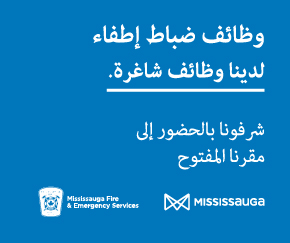اخبار العرب-كندا 24: الثلاثاء 9 أبريل 2024 03:38 مساءً
Some New Brunswick post-secondary institutions are welcoming an increase in the number of attestation letters they can send to international students in support of their undergraduate study permit applications.
But it may not help in time for September, and the schools continue to take issue with new federal rules.
"It will allow us to extend that invitation to more of our accepted applicants than we thought we would have been able to," said Ryan Sullivan, associate vice-president of enrolment management at St. Thomas University.
St. Thomas is going to have access to 314 attestation letters, instead of the 199 it was originally to get.
The higher number will be more in line with the number of international students accepted last year, said Sullivan, but not enough for everyone the school wanted to accept.
St. Thomas received 550 international applications in 2023 and accepted 330 of them, he said. This year, the number of applications was even higher.
Sullivan says competing recruiters from the U.S., the U.K. and Australia were quick to pounce on the Canadian changes to urge potential international students to choose their institutions over Canada's. (Submitted by Jeffrey Carleton)
The federal government introduced a cap on undergraduate study permits "to address the rapid increase of international students," said a statement from Marc Miller, minister of immigration, refugees and citizenship.
The cap number of 236,000 study permits is based on the number of permits expiring this year, minus 20 per cent, for the number of current students expected to apply for extensions and minus another 140,000 for the estimated number of students in primary and secondary school or in graduate or doctoral programs, it said.
The number of permits issued to undergrad international students in New Brunswick is projected to drop 10 per cent from 6,186, last year to 5,567 this year, according to the statement.
Story continues
To achieve that number of approvals, a certain higher number of applications will be allowed. Each of these must be accompanied by an attestation letter, to make sure the student is being accounted for under the cap.
All designated learning institutions in the province are getting more attestation letters than they were originally supposed to get. The total number is increasing from 9,300 to 14,651, confirmed the Department of Post-Secondary Education Training and Labour.
Post-secondary institutions and provincial and federal representatives from New Brunswick said the increase was necessary because a relatively low rate of applicants who want to attend New Brunswick programs are approved for study permits.
The statement from federal minister Marc Miller said the number was topped up for any province whose approval rates are lower than 60 per cent.
At the Collège Communautaire de Nouveau-Brunswick, normally, about one-third of the students who are academically accepted for enrolment end up being granted study permits to attend, said Pierre Zundel, president and CEO.
For next fall, they'd like to have about 750 students, so they'd normally send out 2,250 letters. This year they originally were limited to 1,856. That's now been upped to 2,798, but Zundel thinks it may be too late.
"At this late stage we are not sure how many letters we can still use for fall 2024 given the time associated with the attestation letter process and the permit application process," he said.
It may help for January starts, he added, but there is no guarantee about the number of attestation letters that will be allowed next year.
"It's quite frustrating," trying to figure out how many students to expect, said Zundel.
"We don't want to have too many because then we're going to have problems with housing, but we don't want to have too few because the province has a labour shortage."
Pierre Zundel, the president of Collège communautaire du Nouveau-Brunswick Bathurst, says 48 per cent of the student school's body is international. (Francois Vigneault/Radio-Canada)
"These changes partway through recruitment cycles certainly create a lot of challenges with our brand, globally," agreed Sullivan.
Competing recruiters from the U.S., the U.K. and Australia were quick to pounce on the Canadian changes to urge potential international students to choose their institutions over Canada's, he said.
"These additional letters are good news, but some of the damage has already been done," said Sullivan.
Greg Turner, minister of post-secondary education, training and labour, said New Brunswick officials and their federal counterparts have been vocal about the importance of maintaining the number of international students.
He said the province is grateful the federal government heard the concerns.
"Despite this revision, we do recognize that our conversion rates remain a concern and our government is committed to working with our post-secondary institutions to increase them," Turner said.
Post-secondary Education, Training and Labour Minister Greg Turner says the prvoince has been vocal about the importance of maintaining the number of international students. (Jacques Poitras/CBC)
Zundel isn't sure what CCNB can do about that, as Immigration, Refugees and Citizenship Canada is largely in control of who is approved.
One thing they are trying, as a way to improve their conversion rate, is requiring first semester fees to be paid before letters of attestation are issued.
Financial capability is one factor the federal department has flagged as important to a successful study permit application.
Another is that students don't declare an intention to possibly stay in Canada after their studies
"If they say I could possibly want to stay in Canada, that counts against them. Although we are trying desperately to recruit them to stay in Canada," said Zundel, who finds this "a little incoherent."
To try to improve its rate, St. Thomas is launching a service this week in partnership with an Ontario-based company that describes itself as "Turbotax for immigration."
International applicants will be able to fill out a questionnaire, submit some financial documents and other information, about things like travel history and other key indicators. Border Pass immigration lawyers will be able to look at this information and assess a student's chances of being accepted for a study permit.
"If they decide to continue with the study permit application, we pay for those immigration lawyers to assist the student with their study permit application," said Sullivan.
Another contentious change for international students announced in January is that they need to have more money to cover their living expenses — about $20,000, in addition to their tuition fees.
"We continue to voice our concerns to the federal government as a group," said Sullivan.
تم ادراج الخبر والعهده على المصدر، الرجاء الكتابة الينا لاي توضبح - برجاء اخبارنا بريديا عن خروقات لحقوق النشر للغير






